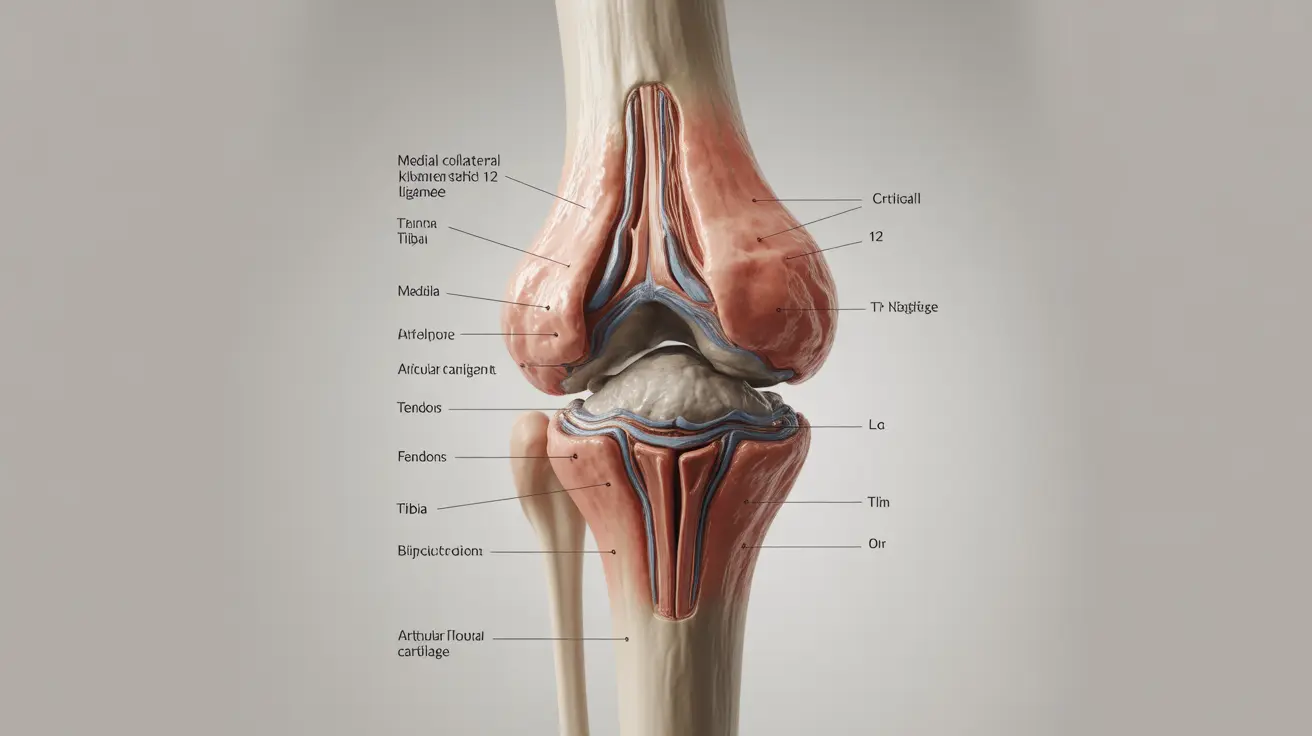Joint pain can significantly impact your daily life, affecting everything from basic movements to complex physical activities. Whether it's a dull ache or sharp discomfort, understanding the underlying causes and available treatment options is crucial for maintaining your quality of life and overall well-being.
This comprehensive guide explores the various aspects of joint pain, including common causes, effective treatments, and lifestyle modifications that can help you manage and prevent joint discomfort.
Common Causes of Joint Pain
Joint pain can stem from various conditions and factors, ranging from acute injuries to chronic medical conditions. Understanding these causes is the first step toward effective treatment:
Inflammatory Conditions
- Rheumatoid arthritis
- Osteoarthritis
- Gout
- Lupus
- Bursitis
Injury-Related Causes
- Sprains and strains
- Sports injuries
- Overuse injuries
- Tendinitis
- Fractures
Other Medical Conditions
- Fibromyalgia
- Infectious diseases
- Hypothyroidism
- Vitamin D deficiency
- Bone cancer (rare)
Treatment Options and Home Remedies
Managing joint pain often requires a multi-faceted approach combining medical treatments and home-based solutions:
Medical Treatments
- Anti-inflammatory medications
- Corticosteroid injections
- Disease-modifying antirheumatic drugs (DMARDs)
- Topical treatments
- Surgery (in severe cases)
Effective Home Remedies
- RICE method (Rest, Ice, Compression, Elevation)
- Heat therapy for chronic pain
- Over-the-counter pain relievers
- Gentle stretching exercises
- Natural anti-inflammatory supplements
The Role of Physical Therapy and Exercise
Physical therapy and appropriate exercise play crucial roles in managing joint pain and improving joint function. A well-designed exercise program can:
- Strengthen supporting muscles
- Improve flexibility and range of motion
- Reduce stiffness
- Enhance joint stability
- Promote better posture and alignment
When to Seek Medical Attention
While some joint pain can be managed at home, certain symptoms warrant immediate medical attention:
Red Flag Symptoms
- Severe pain or swelling
- Joint deformity
- Inability to move the joint
- Sudden joint weakness
- Signs of infection (redness, warmth, fever)
Lifestyle Modifications for Joint Health
Making certain lifestyle changes can significantly impact joint health and pain management:
- Maintain a healthy weight
- Practice good posture
- Choose low-impact exercises
- Use proper ergonomics
- Stay hydrated
- Eat an anti-inflammatory diet
Frequently Asked Questions
What are the most common causes of joint pain and how can I identify them?
The most common causes include osteoarthritis, rheumatoid arthritis, gout, and injuries. Each condition typically presents with specific symptoms: osteoarthritis usually causes morning stiffness and pain that worsens with activity, while rheumatoid arthritis often affects multiple joints symmetrically and may include systemic symptoms.
What are effective treatments and home remedies to relieve joint pain?
Effective treatments include over-the-counter pain relievers, physical therapy, and appropriate exercise. Home remedies such as the RICE method, heat therapy, and gentle stretching can provide significant relief. Some people also benefit from natural supplements like glucosamine and omega-3 fatty acids.
How can physical therapy and exercise help manage joint pain?
Physical therapy and exercise strengthen muscles around joints, improve flexibility, and enhance joint stability. A physical therapist can design a personalized program that includes appropriate exercises, manual therapy, and movement education to help manage pain and improve function.
When should I see a doctor for joint pain and what tests might they perform?
See a doctor if you experience severe pain, joint deformity, inability to move the joint, or signs of infection. Doctors may perform physical examinations, blood tests, X-rays, MRI scans, or joint fluid analysis to determine the underlying cause of your joint pain.
Can lifestyle changes like weight management reduce the risk or severity of joint pain?
Yes, maintaining a healthy weight significantly reduces stress on weight-bearing joints. Additionally, regular exercise, proper nutrition, good posture, and ergonomic practices can help prevent and manage joint pain effectively.




